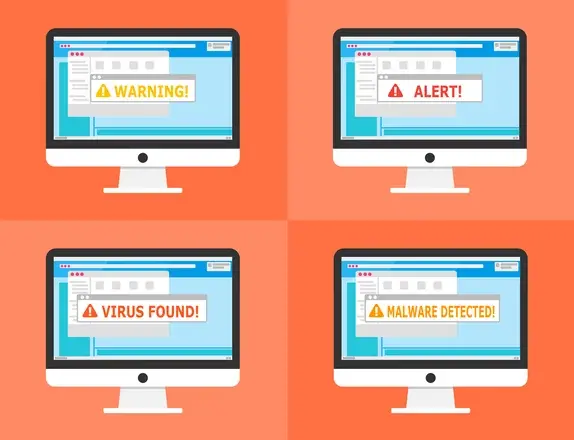CYBER FRAUD: THE DARK SIDE OF THE INTERNET – KNOW IT, SPOT IT, AND PREVENT IT
In today’s digital age, the internet has undoubtedly become an integral part of our daily lives. From online shopping to social media platforms, we rely on the internet for nearly everything. However, alongside the rise of the internet, there has unfortunately been a significant increase in cyber fraud, or internet crime. As a result, it is more important than ever to stay vigilant. This article, therefore, aims to arm you with essential information that will help you spot and stop the latest online threats targeting both you and your finances. Ultimately, knowledge is power, so take action today and empower yourself against the cyber scams of tomorrow.
WHAT EXACTLY IS CYBERFRAUD AND INTERNET CRIME?
Cyber fraud refers to any criminal activity that is conducted through digital means and targets individuals, organizations, or even governments. It encompasses various illegal activities, including hacking, identity theft, financial fraud, cyberbullying, and even cyberterrorism. Internet crime, on the other hand, is a broader term that encompasses a wide range of criminal activities committed using the Internet. These include, for example, distributing illegal content, engaging in online harassment, and spreading harmful malware. While the risks associated with these activities are indeed real, adopting the right mindset and consistently practicing safe online habits can, in fact, empower you to outsmart the scammers and stay protected.

COMMON TYPES OF CYBER FRAUD
HACKING
One of the most common and concerning forms of cyber fraud is hacking. In this context, hackers use their expertise and advanced techniques to gain unauthorized access to computer systems, networks, or personal devices. Once they successfully infiltrate, they can steal sensitive information, such as credit card details, passwords, or even personal photographs. Moreover, this act of invasion not only violates our privacy but also significantly jeopardizes our financial security, leaving individuals vulnerable to further exploitation.
PHISHING EMAILS
Watch out for unsolicited messages claiming you’ve won a prize or inheritance or requests for personal information. Legitimate companies don’t ask for sensitive data like passwords, OTPs, or bank details over email. Delete these fraudulent phishing emails immediately!
Malware and RANSOMWARE
Never click links, download attachments, or enable macros from unverified or suspicious senders. Cybercriminals often distribute malware, viruses, and ransomware this way to access your devices and accounts or lock you out of your files. Be vigilant, and think before you click.
TECH SUPPORT SCAMS
You receive a pop-up message claiming to be from Microsoft or Apple tech support saying your device has a virus. Don’t fall for it! These are scams to trick you into providing remote access or payment for fake services. Legit tech companies don’t operate this way. Close the message and do not engage.
IDENTITY THEFT
Guard your personal information online and be wary of oversharing on social media. Criminals scour the internet for details like your address, birth date, and passport number to steal your identity. Limit what you post publicly and be careful when using unsecured Wi-Fi networks.
RED FLAGS: HOW TO SPOT CYBER FRAUD ATTEMPTS
Cybercriminals are clever, but you can outsmart them by spotting the signs of fraud early on. Keep your guard up and learn to detect when something seems “fishy.” The more vigilant you are, the less likely you’ll become a victim of cyber fraud.
URGENCY AND THREATENING LANGUAGE
Watch out for messages conveying a sense of urgency or using threatening language like “account will be suspended” or “legal action will be taken” This is meant to provoke panic and trick you into sharing personal details or clicking suspicious links. Stay calm and don’t engage.
Links and attachments
Never click links, download attachments, or provide account access to anyone who contacts you unexpectedly. Cybercriminals often use fraudulent links and malware to steal data and money.
REQUESTS FOR PREPAID CARDS OR WIRE TRANSFERS AGAINST CYBER FRAUD
Legitimate companies will not ask you to pay bills, fees, or fines using prepaid cards, wire transfers, or cryptocurrency. This is a popular scam to steal your money while avoiding traceability.
By keeping these red flags in mind and remaining vigilant, you’ll make yourself an unattractive target for cyber fraudsters. Their tricks only work if you let your guard down, so be cautious of unsolicited contact and never share sensitive details or send money to anyone you don’t know and trust. Stay safe out there!

PROTECTING YOURSELF ONLINE: CYBER FRAUD PREVENTION TIPS
By taking some simple precautions, you can make yourself an unattractive target and avoid becoming a victim of fraud.
- First and foremost, make sure to enable two-factor authentication whenever possible, as this adds an additional layer of security to your accounts. In fact, many services, such as Gmail, Twitter, and Facebook, offer two-factor authentication as an option. By turning it on, you will receive a text message containing a code that you must enter in addition to your password. This extra step, although simple, significantly enhances the protection of your accounts.
- Use strong, unique passwords for your accounts, and enable password-saving features. For optimal security, it is highly recommended to use a password with a minimum of 12 characters. Ideally, this should include a combination of uppercase letters, lowercase letters, numbers, and symbols. By incorporating these elements, you can significantly strengthen your password and make it much harder for cybercriminals to crack. Never reuse the same password across sites.
- Monitor accounts and statements regularly for signs of fraud. Check for unauthorized charges or access, and report anything suspicious immediately. Early detection of fraud means less damage and a faster resolution.
Staying cyber-savvy keeps you in control of your online security. Brush up on the latest threats and safeguard steps to keep the bad guys at bay.
WHAT SHOULD YOU DO IF YOU ARE A VICTIM OF CYBER FRAUD?
While we certainly hope this never happens to you, it is important to be prepared in case you do fall victim to an online scam or fraud. In such a situation, it is crucial to stay calm and take immediate action. The sooner you respond, the greater your chances of minimizing potential damage and preventing further harm.

- First, alert your financial institutions immediately. Call your bank, credit card companies, and any other accounts that may have been compromised.
- Next, file a police report about the incident. Provide as many details as possible about what happened. The police report can help with recovering stolen funds or identities.
- Monitor all your accounts closely in the coming weeks for any signs of new fraud. Criminals often come back for repeated attacks. Place a fraud alert or freeze your
- credit to lock access to your credit reports.
CONCLUSION
In conclusion, it is evident that cyber fraud and internet crime are serious and ever-growing threats that continue to evolve in tandem with the rapid advancement of technology. However, with the knowledge and tools you now possess, you are better equipped than ever to recognize cyber fraud in action and take proactive steps to stop it in its tracks. Stay vigilant, trust your instincts, and don’t hesitate to verify anything that sounds too good to be true. Together, we have the power to slam the door on cyber fraud. You’ve got this! Now go out there, spread the word, and help others learn how to avoid becoming victims of cyber fraud.
To stay updated with the latest developments in STEM research, visit ENTECT Online. This is our digital magazine for science, technology, engineering and mathematics.





